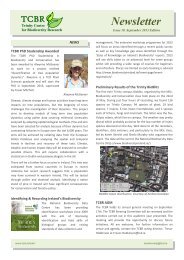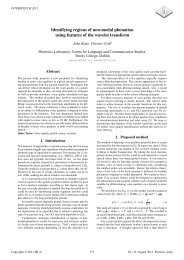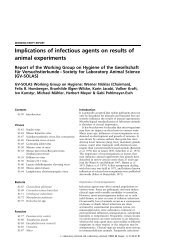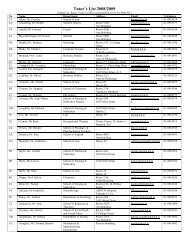Globalization and Inequality - Trinity College Dublin
Globalization and Inequality - Trinity College Dublin
Globalization and Inequality - Trinity College Dublin
You also want an ePaper? Increase the reach of your titles
YUMPU automatically turns print PDFs into web optimized ePapers that Google loves.
labour earnings are widening but wage differentials are not, then unemployment <strong>and</strong> hours reduction<br />
must be playing a large role in driving overall OECD inequality trends.<br />
Among DCs, the picture is mixed. <strong>Inequality</strong> has been steadily declining in Latin America<br />
from the 1960s, despite what happened to skill differentials during the 1980s (Table 3); the patterns<br />
in Africa <strong>and</strong> the Pacific Rim are rather erratic, rising between the 1960s <strong>and</strong> 1970s, falling through<br />
the 1980s, <strong>and</strong> rising again between the 1980s <strong>and</strong> 1990s. On the other h<strong>and</strong>, within-country<br />
inequality has been rising in China <strong>and</strong> India since the mid-1980s, <strong>and</strong> this should dominate any<br />
population-weighted DC inequality index (Lindert <strong>and</strong> Williamson 2001). And again, this rising<br />
within-country inequality trend in the South is not what simple 2x2 Heckscher-Ohlin models would<br />
lead us to expect.<br />
Of course, these trends do not on their own disprove simple trade theory, since distribution<br />
is driven by many factors other than globalization. For example, political developments disfavouring<br />
unions, or the entry of China with its vast reserves of unskilled workers into the world market, or<br />
the simultaneous <strong>and</strong> unrelated introduction of new technology disfavouring unskilled workers, might<br />
account for the increased Latin wage inequality (Wood 1997). Alternatively, such factors as<br />
demography, educational developments, democratization, the collapse of Communism, <strong>and</strong> so on,<br />
may have been the most important factors influencing inequality trends. As always, we need<br />
multivariate analysis to disentangle these separate effects from each other; it is to such studies that<br />
we now turn.<br />
Within-Country <strong>Inequality</strong> <strong>and</strong> <strong>Globalization</strong>: Cross-Country Studies<br />
Since the publication of Deininger <strong>and</strong> Squire’s (1996) dataset, there has been a<br />
28
















